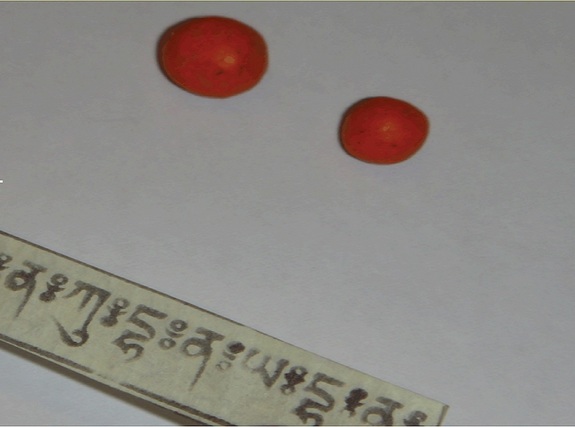A “Doctor House” way of thinking – Interview with Omar Kherad
| 18 March, 2014 | Eva Amsen |
|

|
 Earlier this year, a case report we published received a bit of media attention. It was the case of a patient in Switzerland with an (initially) unexplained case of lead poisoning. After a detailed interview, the culprit was identified: This patient had been taking alternative medicine from Bhutan, said to contain the hair of a dead priest. These pills were coated in red paint, which a laboratory analysis showed to be rich in lead.
Earlier this year, a case report we published received a bit of media attention. It was the case of a patient in Switzerland with an (initially) unexplained case of lead poisoning. After a detailed interview, the culprit was identified: This patient had been taking alternative medicine from Bhutan, said to contain the hair of a dead priest. These pills were coated in red paint, which a laboratory analysis showed to be rich in lead.
We recently caught up with Omar Kherad, author of the case report, to ask him about the case and about his advice for doctors who encounter patients who take Complementary or Alternative Medicine (CAM).
Why did you decide to write a case report about this patient?
My interns and I struggled to find the correct diagnosis. As mentioned in the case report, we initially performed all the usual complementary tests with no success (CT scan, endoscopy). In the end, I told my interns (referring to a certain ” Doctor House way of thinking”) that we obviously did not have all the information and that the symptoms may be reflecting a lead intoxication.
The detailed history confirmed our suspicion and I thought this case was suitable for publication, as we are not accustomed to this kind of intoxication in Switzerland and because this case reflects the importance of a complete and detailed history of drug consumption on admission.
In the discussion of your article you wrote “Patients often do not overtly disclose their consumption of CAM drugs for fear of lack of understanding by their doctor.” Do you have any suggestions for doctors to make sure that they get the complete history of any type of medication (including CAM) their patients might be taking?
A detailed history is very important but doctors should not judge their patient even if they don’t believe in CAM. Language barriers should be tackled through interpreters and simplification.
Have you had any responses from people who read about this case on LiveScience or on another site that covered it?
Not directly, but I noticed that this case report was discussed in others journals and websites, such as FOXnews.com. On several internet forums, I also read with interest some debate on the tough question of whether CAM works, and is it safe?
What has been your overall experience publishing with F1000Research?
Great experience, very fast publication process and I like the reviewing transparency.

|

